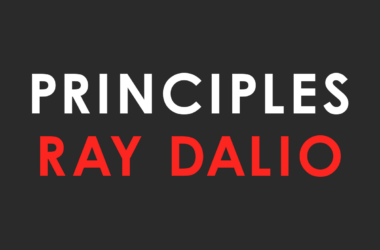We just went through a performance review cycle at Kiddom, which got me to thinking about people systems that align incentives between employees and the business. The goal is to encourage folks on the team to autonomously work to better the business, which in turn should accrue rewards back to those who have contributed to overall company success. At early stage startups like ours, this is primarily accomplished through option grants, conferring direct ownership of the firm and raising in value only when the business itself becomes more valuable1.
Alas, good things never last, and as teams get increasingly larger, this alignment of incentives between employer and employee dissolves under the team’s own weight, inevitably transitioning into the so-called promotion culture of big companies. This is where job titles and compensations are standardized, and employees’ work maps to this system as a proxy for business results, thus made more abstract. Usually, this is accompanied by processes like performance reviews and calibrations to encourage equity and fairness.
Job ladders were invented, in part, to anchor in place some definition of career progress. They define the type and scope of work that approximates business impact, scale down to something individuals can achieve with semi-regularity. For instance, an entry-level software engineer would be expected to fix bugs, write production-ready code, and collaborate with other team members to develop features on the team roadmap. In big companies, if these actions move the needle on the business, they tend to be a few degrees removed—the point is to gauge capability primarily on the execution of these actions.
This evolution feels inevitable because large businesses have so much surface area that any one individual is far-removed from making a huge difference. When the company is small, a single person can drive significant product and implementation changes by themselves. As everything grows, a larger team will start introducing more layers of ownership, decision-making, specializations, plus a whole host of operational staff to keep things running smoothly. Yes, they all impact the business in some way, but figuring exactly who and where and how much is at best fuzzy, and at worst indeterminate.
You can look at this cynically and claim that a lot of work is done for work’s sake, and most of it doesn’t matter as it has no tangible impact on the business; indeed, this feeling of being a cog in a purposeless machine is a reoccurring source of angst and anxiety for employees of big corporations. It’s a bit analogous to how interviews for software engineering jobs have become their own genre of work, and the achievement becomes more about studying and passing the interview in lieu of demonstrating good software development behaviors.
Yet, most teams end up adopting some version of this framework, with career paths and performance review cycles and distinct levels tied to compensation. The system works fine for most employees2 and folks with industry experience get used to variations on performance evaluations pretty quickly. Yes, there are undeserved promotions, but they tend to be the exceptions—hence all the annoyance when it does occasionally happen. The goal isn’t to completely eliminate false positives, but to set a reasonable floor for the entire team. Alternatives like holacracy do pop up once in a while to challenge this status quo, yet none have really sustained beyond the initial attention-grabbing headlines.
In fact, I’d say that the one thing more frustrating than seeing colleagues game the promotion system for their own ends—is seeing colleagues tap into shadow systems to rise through the ranks opaquely, accumulating importance and stature that feels even more undeserved. Parodied in movies like Office Space, this is the phenomenon of the CEO’s-new-favorite-worker, where getting into the good graces of authority figures reaps disproportionate rewards. Given a choice, I’d stick with the imperfect but more transparent system every time.
As an aside, having to exercise options with real dollars and the emphasis on upside differentiates options from RSU grants typical of later-stage startups and public companies. That is, options incentivize growth.↩
I guess you could argue that performance review systems are also self-reinforcing, where those who don’t rate well don’t tend to stick around anyway.↩




